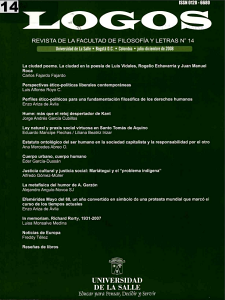Abstract
The purpose of this paper is to analyze Hume’s ideas on space and time, and to show the peculiarity of said ideas, as they do not come from experience, but, quite the contrary, are necessary for it. To achieve such purpose I intend to analyze the arguments exposed by Hume when he tackled such ideas; this in order to enlight and provide a different comprehension to the traditional reading of Hume’s notions on space and time. This traditional reading is inmersed in the newtonian attitude towards space and time. However, this task cannot be achieved in an isolated way to the investigations made in Hume’s time on these notions, nor cannot we take it away from the sistem which they are a part of: The epistemologic humean system. For those reasons the first step will be to deal with, in a broad way, the main attitudes of Hume’s time on this subject. After that I’m gonna deal with the problem around the ideas of space and time in Hume’s time. Those ideas are going to be divided in two parts: The strong reading on these subjects, i.e., the traditional reading; and, secondly, the weak reading, the one proposed by Kemp Smith. This last one will be the one that will found my main thesis: Hume’s ideas on space and time are a priori.Downloads
Download data is not yet available.



